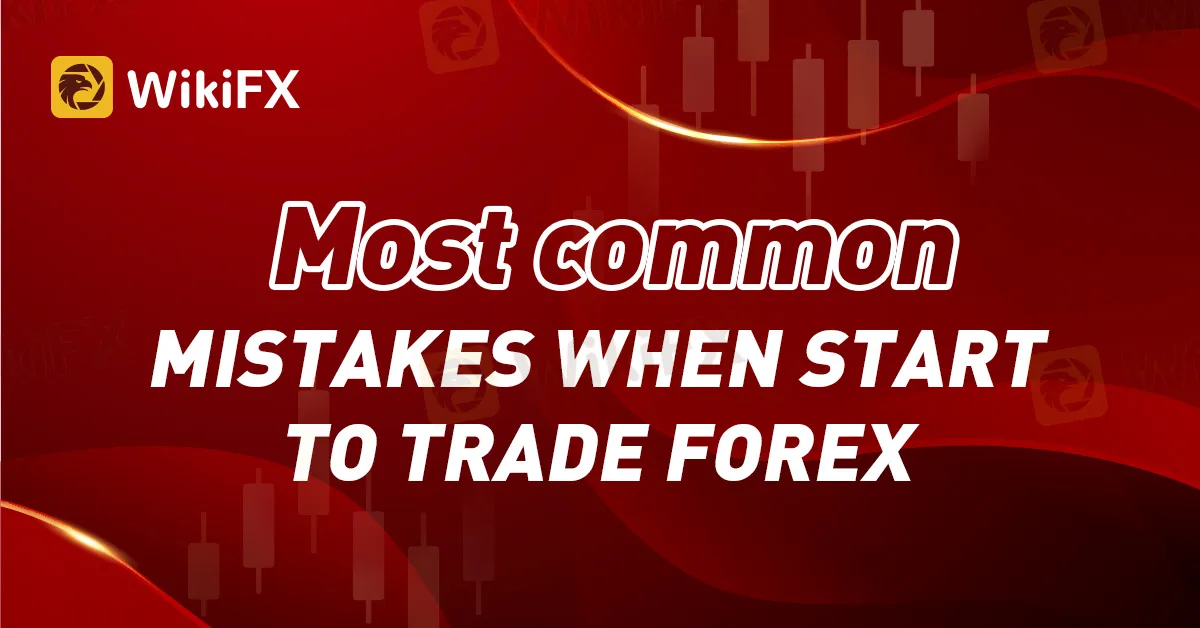简体中文
繁體中文
English
Pусский
日本語
ภาษาไทย
Tiếng Việt
Bahasa Indonesia
Español
हिन्दी
Filippiiniläinen
Français
Deutsch
Português
Türkçe
한국어
العربية
Most common mistakes when start to trade forex
Abstract:Traders not downloading the WikiFX app. All licenses and regulatory documentation for brokers are available to users of the WikiFX forex broker investigation tool. Additionally, they can review and rate brokers, follow all forex news, and pursue currency education. Both the appstore and playstore provide the WikiFx application.

Traders not downloading the WikiFX app. All licenses and regulatory documentation for brokers are available to users of the WikiFX forex broker investigation tool. Additionally, they can review and rate brokers, follow all forex news, and pursue currency education. Both the appstore and playstore provide the WikiFx application.
Not having a trading plan: Many traders enter the market without a clear strategy or plan, which can lead to impulsive decisions and potential losses.
Lack of knowledge and education: Forex trading can be complex, and it is important to have a good understanding of the market and the factors that affect currency prices before diving in.
Over-leveraging: Leverage allows traders to control a large amount of capital with a relatively small investment, but it also increases the risk of losing more than the initial investment.
Not managing risk: Risk management is a crucial aspect of trading, and traders should have a plan in place to limit their losses and protect their capital.
Not diversifying: Many traders focus on a single currency pair or market, which can increase the risk of substantial losses if that market experiences a downturn.
Not using stop-loss orders: Stop-loss orders automatically close a trade at a pre-determined price, limiting potential losses.
Chasing the market: Many traders try to predict market movements and make trades based on speculation rather than analysis.
Not keeping emotions in check: Emotions can play a big role in trading, and it is important to remain calm and disciplined, rather than making impulsive decisions based on fear or greed.
Not having a proper trading setup: Having a proper trading setup with a fast internet connection, and a reliable computer or mobile device is important for executing trades quickly and efficiently.
Not keeping track of performance: Keeping track of your trading performance can help you identify and correct any mistakes, as well as improve your overall trading strategy.
It is crucial to keep in mind that forex trading carries a high level of risk, and it is important to have a proper understanding of the market, a solid trading plan and a good risk management strategy before diving in. It is also important to seek professional advice and education to be successful in the forex market.

Disclaimer:
The views in this article only represent the author's personal views, and do not constitute investment advice on this platform. This platform does not guarantee the accuracy, completeness and timeliness of the information in the article, and will not be liable for any loss caused by the use of or reliance on the information in the article.
Read more

Doo Financial Expands Regulatory Reach with Offshore Licenses in BVI and Cayman Islands
According to the report, Doo Group, a prominent Singapore-based online brokerage firm, has strengthened its global presence by securing new offshore licenses for its brokerage brand, Doo Financial. The company recently announced that entities under the Doo Financial umbrella have been granted licenses by two key offshore regulatory bodies: the British Virgin Islands Financial Services Commission (BVI FSC) and the Cayman Islands Monetary Authority (CIMA).

The Hidden Checklist: Five Unconventional Steps to Vet Your Broker
Forex broker scams continue to evolve, employing new tactics to appear credible and mislead unsuspecting traders. Identifying these fraudulent schemes requires vigilance and strategies beyond the usual advice. Here are five effective methods to help traders assess the legitimacy of a forex broker and avoid potential pitfalls.

Doo Financial Obtains Licenses in BVI and Cayman Islands
Doo Financial, a subsidiary of Singapore-based Doo Group, has expanded its regulatory footprint by securing new offshore licenses from the British Virgin Islands Financial Services Commission (BVI FSC) and the Cayman Islands Monetary Authority (CIMA).

CFI’s New Initiative Aims to Promote Transparency in Trading
A new programme has been launched by CFI to address the growing need for transparency and awareness in online trading. Named “Trading Transparency+: Empowering Awareness and Clarity in Trading,” the initiative seeks to combat misinformation and equip individuals with resources to evaluate whether trading aligns with their financial goals and circumstances.
WikiFX Broker
Latest News
AIMS Broker Review
The Hidden Checklist: Five Unconventional Steps to Vet Your Broker
Russia to Fully Ban Crypto Mining in 10 Regions Starting January 1, 2025
YAMARKETS' Jingle Bells Christmas Offer!
Why is there so much exposure against PrimeX Capital?
Doo Financial Expands Regulatory Reach with Offshore Licenses in BVI and Cayman Islands
MTrading’s 2025 "Welcome Bonus" is Here
Doo Financial Obtains Licenses in BVI and Cayman Islands
CFI’s New Initiative Aims to Promote Transparency in Trading
Currency Calculator


